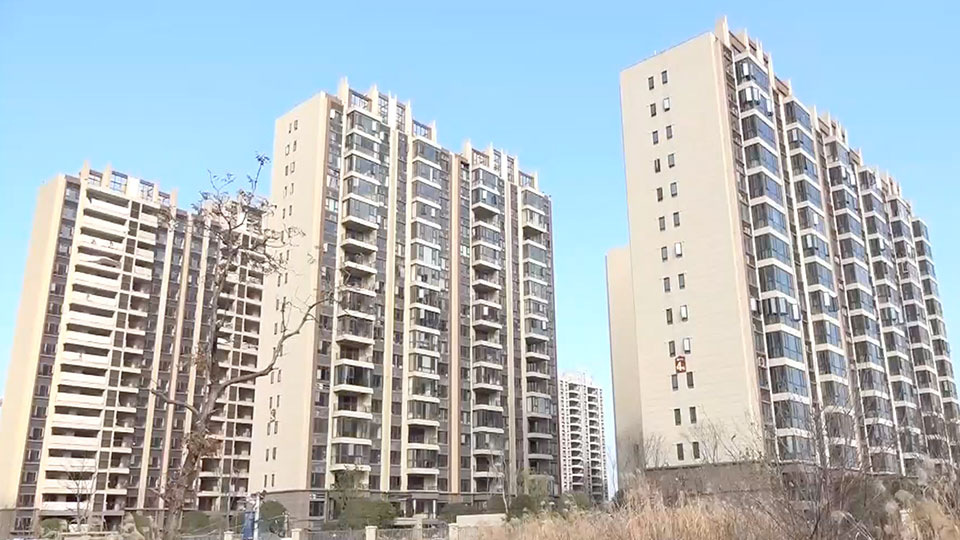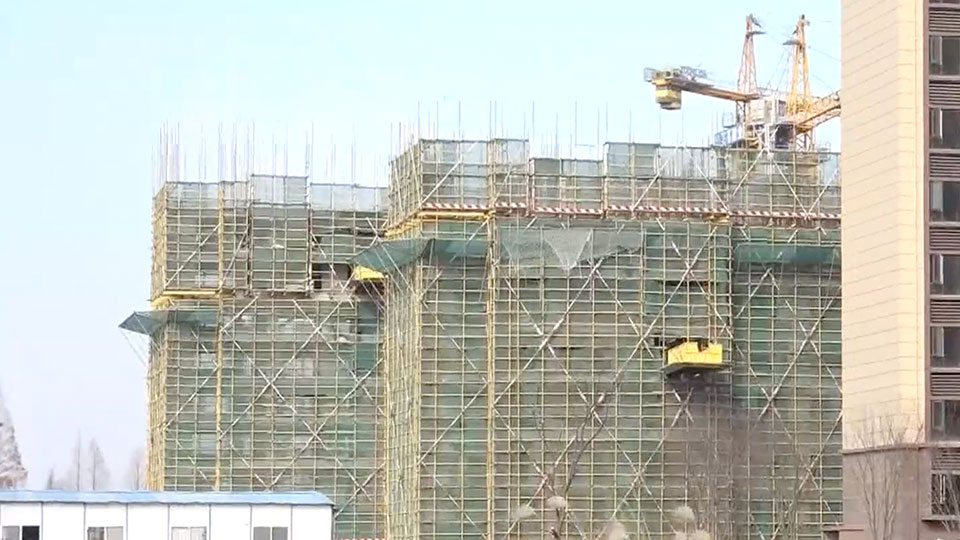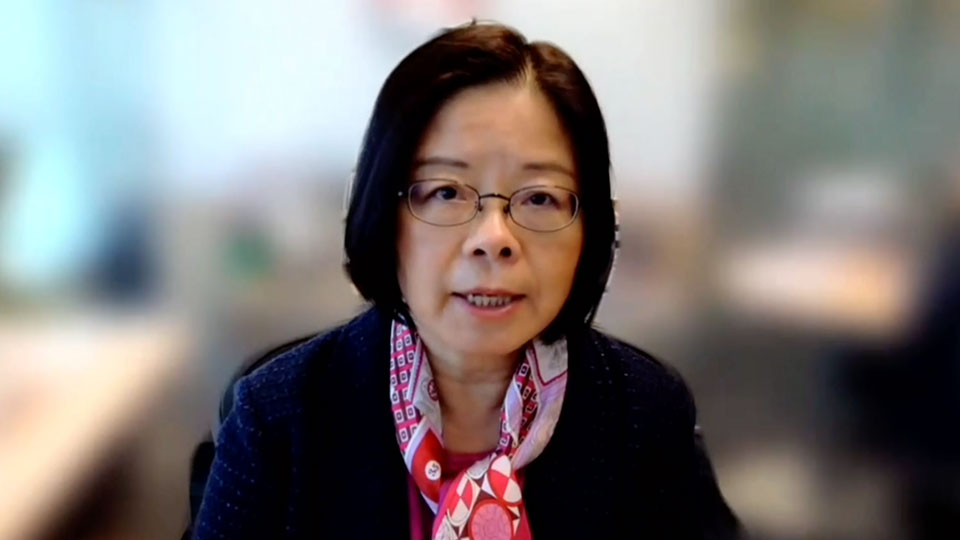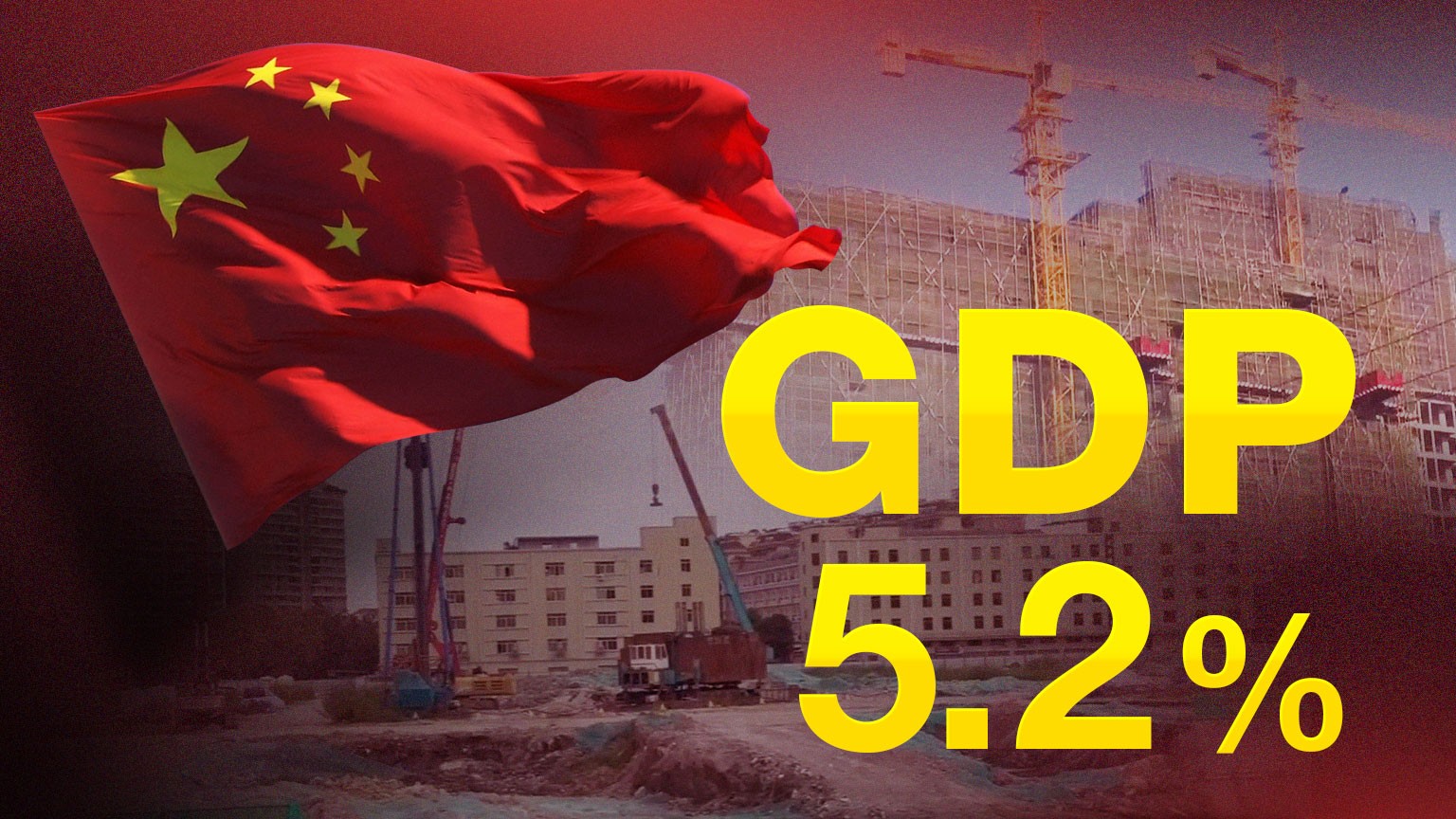The National Bureau of Statistics announced on Wednesday that China's Gross Domestic Product grew 5.2 percent last year from 2022 in inflation-adjusted terms.
The rate of expansion is higher than the 3 percent growth of the previous year, but still relatively weak.
For the three months to December, China's GDP grew 5.2 percent year-on-year. But expansion from the previous quarter was just 1 percent, signaling a slowdown in the pace of recovery.
Future uncertainties
For the first time in six months, China's National Bureau of Statistics has released unemployment data for young people.

The survey shows that the unemployment rate among youth aged 16 to 24 stood at 14.9 percent December 2023. That's down from a record high of 21.3 percent in June.
Though students had been included before, the new data leaves them out. The bureau said this was because it's impossible to accurately reflect the employment situation of young people actively looking for jobs if students are part of the data.
Key economic indicators
While corporate production is robust, consumption slowed and the real estate market remains sluggish.
Industrial production in December rose 6.8 percent from the same month in 2022 due to a surge in auto production amid growing demand for electric cars, surpassing November's 6.6 percent rise.
On a yearly basis, it expanded by 4.6 percent from 2022.

Meanwhile, retail sales, an indicator of consumption trends, grew 7.4 percent in December compared to the same month in 2022. That's down from 10.1 percent in November.
Year-on-year, retail sales rose 7.2 percent compared to 2022, when the number was in negative territory.

On the other hand, investment in real estate development posted its second straight year of decline, sliding to minus 9.6 percent from 2022.
In addition, the monthly housing price index for newly built houses fell in 62 of 70 major cities.
The number of cities where prices fell increased by 3 from the previous month, signaling a spreading real estate recession. Experts say the real estate sector is estimated to make up nearly 30% of China's GDP.
Construction work suspended
In the suburbs of Changde in Hunan Province stands a housing complex run by Country Garden, the largest real estate development company in China.

Many residents are already living in completed buildings. But other buildings in the complex have neither windows nor doors, with work on outer walls and interiors yet to begin.

Materials and heavy machinery were left at one deserted site. A security guard at the construction company said only that construction work has been suspended.
Local authorities say construction was broken off after County Garden failed to pay the contractor.
Country Garden was involved in more than 3,000 construction projects, mainly in regional cities, in December 2021. But the firm's financial situation has rapidly deteriorated after it defaulted on debts amid a slumping real estate market.
As a result, construction projects have been suspended or delayed, one after the other, all across China.
Govt. puts top priority on building completion
A wave of people refusing to repay loans for houses that had yet to be completed spread across China about eighteen months ago.
The Chinese government responded in August 2022 by announcing a policy to financially support the completion of properties where construction had been suspended.
The People's Bank of China, China's central bank, established a special loan facility of 350 billion yuan, or around 49 billion US dollar, for that purpose.
Construction around the country was able to resume after real estate developers received loans through banks to improve their cash flow.

As a result, 1.65 million units, or 60 percent of the government's plan, were completed and handed over as of August last year.
The government has indicated it will continue to prioritize the handover of properties whose construction has been suspended. The central bank has announced it will continue the special loan until the end of May this year.
However, it is estimated that as many as 20 million unfinished condominiums have been just left as they are.
For that reason, experts say it will take time for the market to improve.

Handover not a happy ending
Construction was suspended at this condominium in Nanchang, Jiangxi Province, in August 2021. But construction resumed and the handover of apartments to residents began at the end of November 2023.

A woman in her 50s who is a live-in housekeeper, her construction worker husband, and her live-in factory worker son, bought an apartment together in 2020.
They continued to pay for the apartment even after construction was suspended, without knowing whether they would ever get their hands on it.

The property was finally handed over in January.
On her first visit afterwards, the woman said that, for better or for worse, she was glad they had finally gained the apartment. But she added that their patience had been strained over the years of waiting, which had been "painful."
While the apartment building was completed, the road in front of it remains unpaved. Garbage is scattered around, and there are only a few tenants in its commercial space.
In addition, the building has obvious cracks and gaps. Some residents say they are making repairs in the apartments themselves.
A man who bought one apartment said the place fell far short of his expectations, with many promises unfulfilled. But he added that he has no choice but to accept the situation.

Economic headwinds
Chinese Premier Li Qiang said his nation's economy is making steady progress and will continue to provide strong impetus for global economic development.

Prior to that, Xi Jinping, in his New Year's message, acknowledged that China's economy is facing difficulties.
He said, "We are bound to encounter headwinds. Some enterprises had a tough time. Some people had difficulty finding jobs and meeting basic needs."
It is rare for Xi to comment about economic difficulties in his New Year's message. Experts say he expressed his willingness to empathize with people who are struggling with their daily lives. It also showed he has a sense of crisis about the economy.
Expert: Property sector the biggest concern
Wang Tao, Chief China Economist at UBS Investment Bank, says the property sector is going through the deepest downturn in history.
"So at the moment housing, new housing starts on a monthly basis is only 35% of the peak level reached in the second-half of 2020," she said.
Wang added, "We expect that housing starts and sales will stop falling in the middle of this year. But as for the year as a whole, there will still be some decline, 10% decline in housing starts, 5% decline in sales volume and 5% decline in real estate investment."

Wang says the sector's dismal performance is spreading into the rest of the economy. She says, "China's local governments rely a lot on property and land sales for revenue. So with property being weak, local government fiscal problems have intensified. They have payment issue."
She added, "Also, traditionally, they rely China's government, rely on local government to borrow more and to leverage on the land revenue and to do infrastructure. Now, with the debt payment issue, that channel has been constrained."
Consumption makes up the bulk of China's GDP but Wang says financial turmoil in the real estate industry hurts household confidence, making people reluctant to spend.
China changing
UBS estimates China's GDP growth in 2024 will be around 4.5% or so. Wang thinks it is a year of "stabilization and consolidation" and that China is going through a cyclical downturn.
"But it's also adjusting its growth model. From previous reliance on property and local government to less reliance on those sector. And so new growth has to come from manufacturing, upgrading, the green transition and consumer consumption growth," she adds.
Wang also says external factors such as the performance of the world economy, and the impact of China's tech conflict with the US, need to be considered.
NHK World talks to Wang Tao, Chief China Economist at UBS Investment Bank
